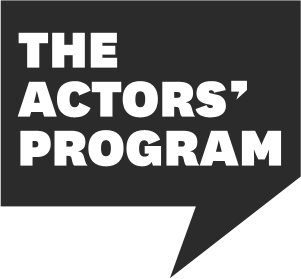Overview
Directors, of both stage and screen, are inquisitive about the world and the human drama that helps us understand it. Spirited and driven, directors are unique in their ability to thrive from collaboration. They are inspired by the power to be found in crafting performance with actors, and ever curious in their point of view. Robust and agile, directors are unique practitioners. They offer their individual insight, and abilities, to lead both performance and production creatives, toward one unified vision.
The Directors’ Program provides an individualised pathway to harness YOUR unique vision as a director. We use tool-box based study and practice to gain insight into the experience of directing others. This one-of-a-kind program is specially curated with practical classes built around Observation; Practitioner Tutorial; Practical Rehearsals and Workshops.
Observation:
Directors must inspire.
The Directors’ Program aims to demystify the process of eliciting connected performance from actors. The program lifts the veil on the rehearsal room with the opportunity to observe industry professionals at work.
Both screen and stage directors are agile, organised and highly individual in their skills-set and approach. So much can be gleaned from observing their manner and approach. Each week new practitioners work with our trainee actors, and our directors will be right there seeing how they teach, craft and troubleshoot moment-to-moment in the rehearsal room or on-set. Where appropriate these skills can be experienced from the actor’s perspective by participating in key tasks and exercises. Classes in voice, movement, acting technique and professional skills can also be observed, and where applicable participated in. These observational classes are then supplemented by practitioner tutorials (see below).
These observational classes provide:
The chance to see industry leaders at work.
Exposure to a wide range of approaches, tools and rehearsal room / on-set demeanours to inspire and inform your own individual practice.
A diverse introduction to the industry, up-to-the-minute technique and the particular language used both in the rehearsal room and on set.
Exploration of specific techniques, and how these techniques are both imparted and implemented, to craft performance in others.
Practitioner Tutorial:
Directors must support.
Our two directors engage in specially curated practitioner tutorials in a highly concentrated learning environment. Broader fundamentals are delivered by Benjamin Henson and Michele Hine for stage, and Simon Bennett and Emmett Skilton for screen. Each week our guest practitioners supplements the directors’ observation of their classes by leading a trainee director only tutorial. This is the opportunity to ask questions and delve more deeply into the practitioner’s working method, and toolbox, from their perspective. Guest tutors represent a wide range of disciplines from the both stage and screen, all working in the industry right now.
Tutorials provide:
Individualised time with the country’s leading professionals.
A demystification of rehearsal room practices for both stage and screen.
Exclusive insight into a diverse range of approaches and techniques aimed at crafting performance, working with actors and serving the needs of a scene.
An introduction to the leading practitioners with a mind to future working relationships.
These tutorials also provide a frame work for:
Screen:
Preparation of a script for both on-set and location shoots.
An introductory insight into the technical world of the screen industry.
Development of a language for crafting an actor’s performance for the camera.
An understanding of the roles of other creative and technical team members and the director’s relationship with them.
A trouble-shooting tool box of skills aimed at staying creative and agile in a demanding industry.
Stage:
Preparation, research and thorough understanding of how play scripts are constructed and the tools to present a work from page to stage.
A deeper understanding of how to read performance, pinpoint the needs of the actor and develop individualised strategies for cohesive, truth-led acting.
An appreciation for, and understanding of, the roles of creative collaborators in all departments of stage production.
Development of an analytical response to play texts and interpretive ideas.
Practical Rehearsals and Workshops:
Directors must direct.
Your year at the Directors’ Program is built around increasing opportunities to craft performance through practical experience. For all of these practical experiences, in both stage and screen, directors in training will work with professional actors. Whether working on excerpts from an existing play, or filming sample scenes, the emphasis will be on sculpting performance with trained actors, to industry-ready standards, in a way that is unique, informed and creatively responsive.
The trainee directors will have the opportunity to shadow and assist / direct for two leading industry professionals on both a location shoot project and a full-length play. They will thereby learn the complete process from first-read to performance / filming.
These practical experiences provide:
An exacting eye for performance that is buoyed by truth, daring and imagination.
A concise and igniting language for the rehearsal room, whether leading actors to be stage or camera ready.
A confidence in leadership that is balanced and motivating.
The practical tools to generate an incisive plan that is informed, flexible and responsive to discovery.
The opportunity to implement newly observed skills and techniques.
Mentorship and Feedback:
Nothing at the Directors’ Program is assessed through marks or grades - the work is 100% practical. Mentorship encourages progression in the individual practice of the director, tailored for their specific needs. Feedback is given by the core Directors’ Program tutors. This is done through observation of the practical rehearsals and an evaluative discussion with the professional actors. Specific action-led goals are then set in discussion with the trainee director to strengthen and broaden the director’s unique practice cumulatively over the four-term year.



